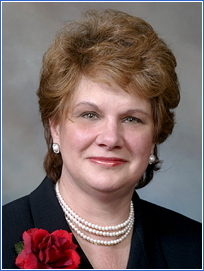This is a review by Sandy Clevenger
In Phil Schlechty’s book, “Working On the Work: An Action Plan for Teacher, Principals, and Superintendents”, I was struck by some of the statements made in this book. Many of the statements directed toward teachers are things already taught in university. However, “skills” taught to principals and superintendents are instructions promoting manipulation of the work force and community to reach the goals of the superintendent. And of course, this goal is to promote Schlechty and his standard bearer network.
In the introduction, Schlechty’s states, “For those who insist that the only way to improve schools is to proceed on the basis of the ‘research’, this book will be a disappointment. No systematic research program has been directed at assessing the impact of the WOW approach on improving schools.” As you read the laws surrounding Title II professional development, you will see a common strain, a requirement for professional development that is research based.
WOW promotes a philosophy that people learn and retain much more when they enjoy and see the relevance of the topic. This philosophy has been espoused for more than 2000 years and is a part of university courses of study in education. Philosophy is important to start us in the right direction, but worth little without practical knowledge of implementation Ongoing research based professional development is necessary at this point. In my opinion, an initial training in the philosophy of the district is enough. The remaining PD should be directed toward research based training as required by law. Training should be specifically designed to address the needs of students identified through systematic assessment and the needs of teachers identified through their professional growth plans.
Some teachers told me that they had requested training that was directly related to their growth plans and they were told there was no money for this training. This is difficult for me to understand when the district was able to find enough PD money for the last three years to pay the Schlechty foundation $216,000. (This does not include the hidden expenses of travel, food, stipends and substitutes.)
I’d like to quote another statement from chapter 3, page 46. “Most parents know their children much better than most teachers know them. Parents are therefore a valuable source of information for the teacher.” I also agree with this statement and feel that many teachers agree as well. This is another piece that could easily be presented in that initial training.
It is later in the book where the roles of Principals and more specifically, Superintendents are discussed. The book explains how these administrators develop a “guiding coalition” that is “favorably disposed toward the kind of changes he or she has in mind.” Principals are supposed to carefully observe to see which teachers respond positively to the activities presented by the principal. In that way he or she “can make a reasonable judgment regarding those on whom he or she can depend to share an agenda and push a real effort to bring about change.”
It seems to me that the focus here should not be the Principal or Superintendent’s agenda. The focus should be on bringing together a staff with various talents and ideas and using that wealth together to promote an environment where children are happy, safe and learning. That is the agenda of the teachers and should also be the agenda of the principals and superintendent. The principals and superintendent should not have a separate agenda in which they subtly manipulate the teachers, community and board into believing that their agenda is “our agenda” and their vision is “our vision”. And that agenda or vision should never be designed to promote a specific institution that profits financially from the said “vision”.
